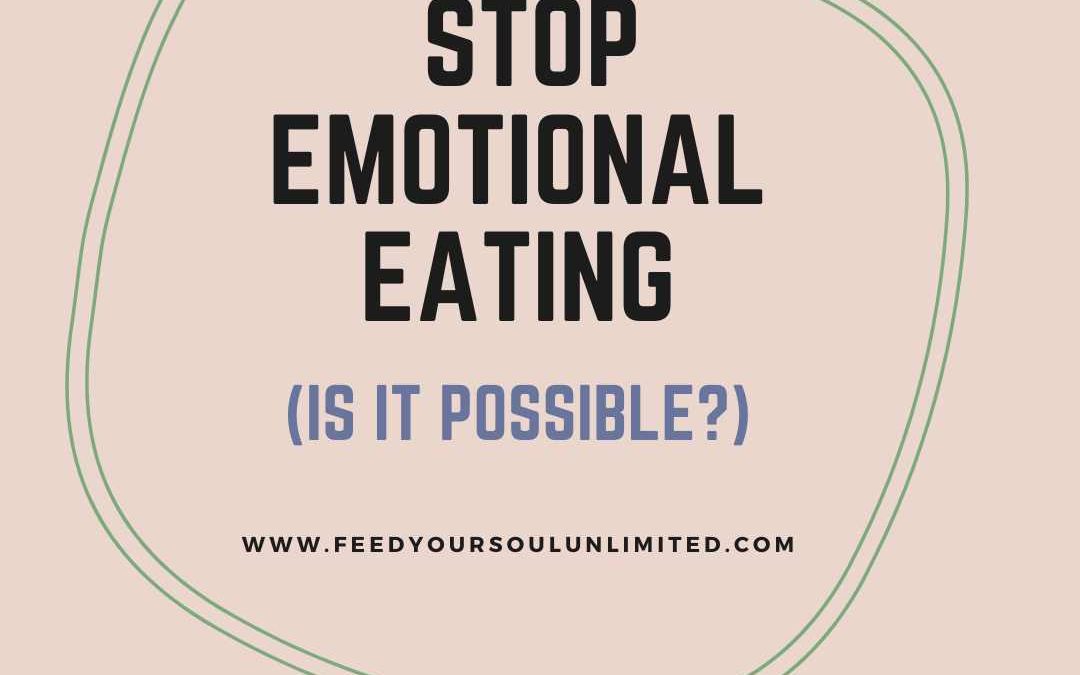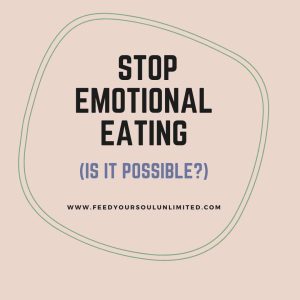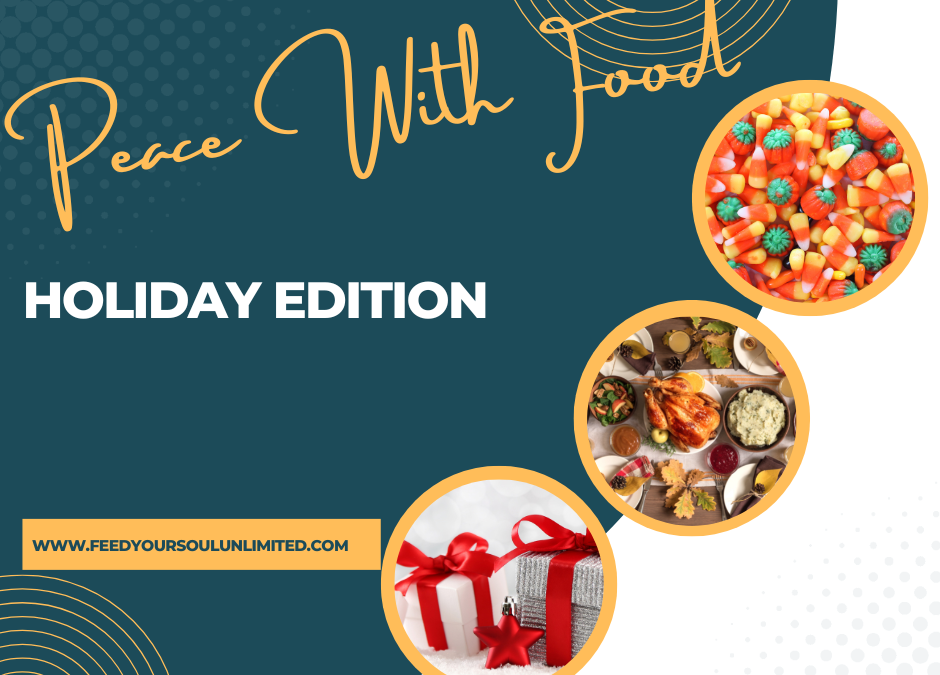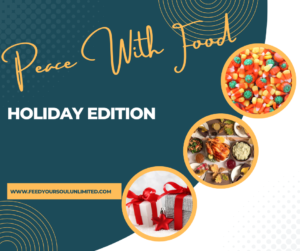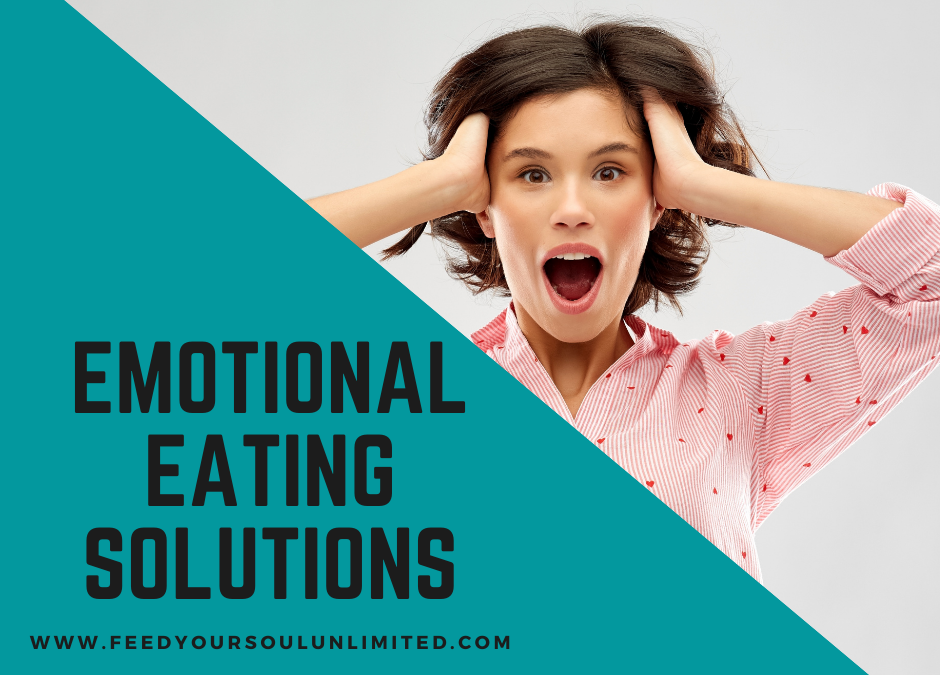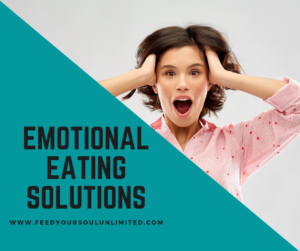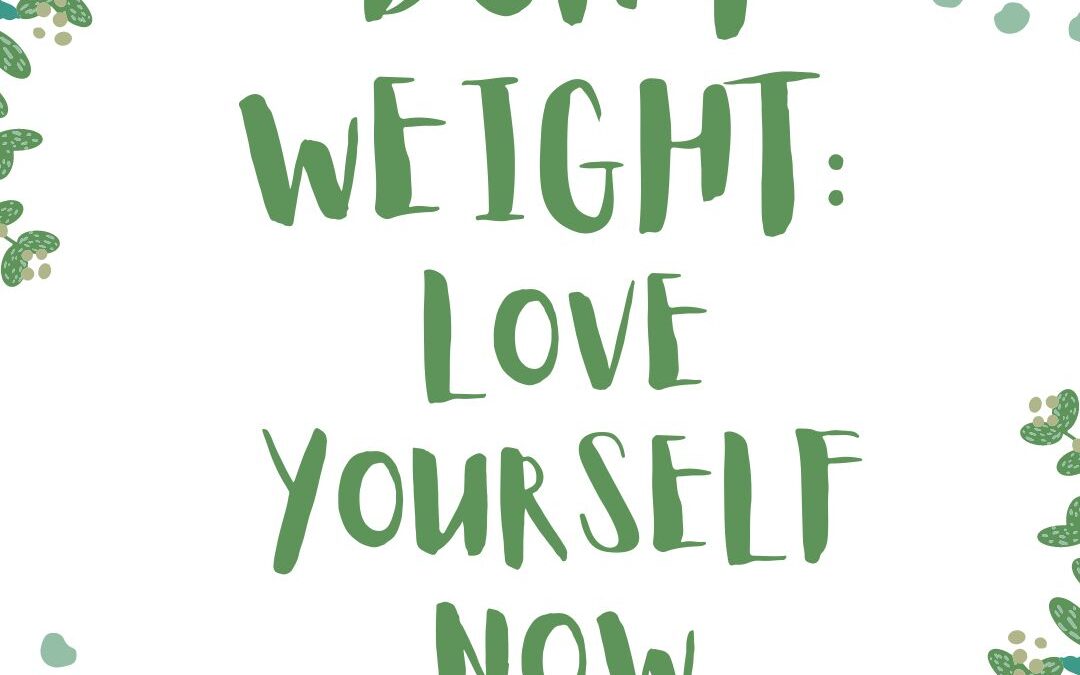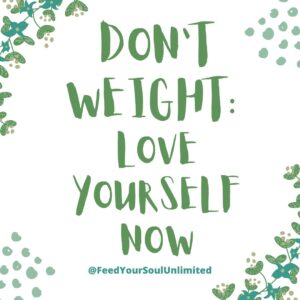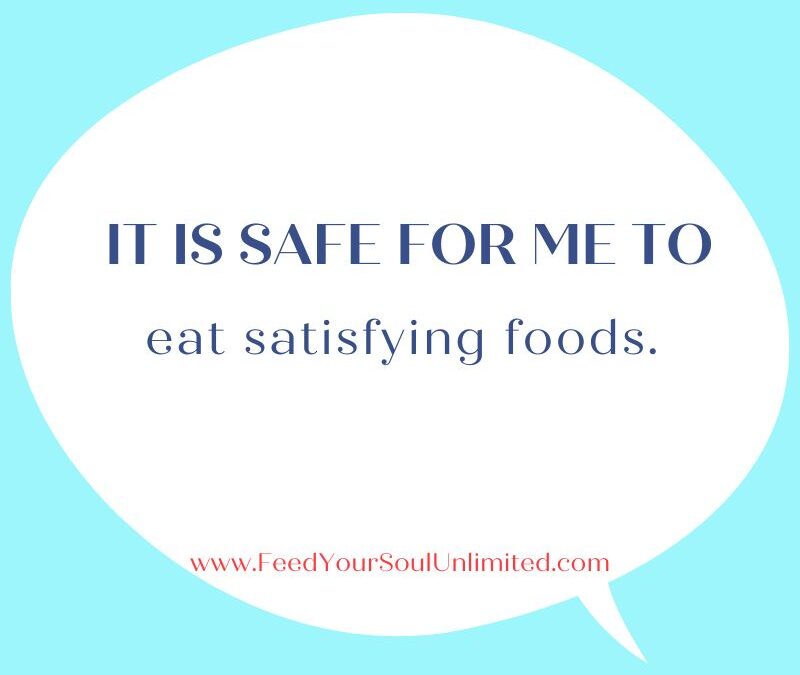
by KimMcLaughlin | Apr 11, 2023 | Emotional Eating





What do you need most to stop emotional eating?
I get asked this a lot.
Do you know that you unknowingly sabotage yourself with food? You engage in behaviors that lead you to overeat!
Emotional eating can be challenging to stop, but there are several things you can do to lessen it.
The first step is to become aware of your emotional triggers for eating. Ask yourself if you’re eating because you’re hungry or if you’re using food to cope with emotions such as loneliness, stress, boredom, anxiety, or sadness.
The second step is to learn AND use healthier coping mechanisms. Identify strategic ways to deal with emotions, such as exercise, meditation, reading, or talking to a friend or therapist.
The third step is to practice mindful eating by paying attention to the taste, texture, and smell of food, and eating slowly and without distractions. Eating mindfully helps you be connected to your body and all the physical triggers to eat.
You can unknowingly sabotage yourself with food, by not recognizing and stopping the root of the problem:
- Eating to deal with emotions can lead to dissatisfaction with your body and yourself. When you eat emotionally, you are not dealing with the emotional problem, you are making the problem worse.
- Restrictive dieting and depriving yourself of certain foods can lead to intense cravings and binge eating. Limiting ourselves makes the rebel side come out and what to eat what it wants.
- Skipping meals and limiting food can lead to overeating later in the day, especially if you’re hungry and tired.
- Judging yourself and your behavior creates a negative mindset. This negative mindset starts a cascade of negative reactions that include overeating.
What can you do to create more food freedom?
First, practice Intuitive Eating. Learn to listen to your body’s hunger and fullness cues. Give yourself permission to eat all types of foods starting when you are hungry and ending when you are satiated or full.
Second, surround yourself with people who support your goals and create a positive and supportive environment at home and work. Hang out with people who are listening to their bodies and do not engage in diet talk.
Third, practice Self-Care. Take care of your physical, emotional, and mental health by getting enough sleep, eating good food, managing stress, and engaging in activities that bring you joy.
Fourth, seek help if you are struggling. Join a program where the focus is on Intuitive eating. If you’re struggling with emotional eating, consider seeking help from a therapist or registered dietitian who specializes in this area.
Want to get out of the cycle of yo-yo dieting and end emotional eating? We are having a live round of our signature program Emotional Eating Solutions. Check us out to save your spot. https://feedyoursoulunlimited.com/emotional-eating-solutions-self-study/
Kim McLaughlin, MA is a Psychotherapist, Speaker, Author, and Coach who specializes in working with people who suffer from binge eating and emotional eating. She is a Certified Intuitive Eating Counselor. She is the author of the best-selling book Feed Your Soul Nourish Your Life! A Six Step System to Peace with Food and the Amazon #1 Best Selling book Discovery Your Inspiration.
You can find Kim on her podcast Feed Your Soul with Kim and you can find it on all podcast platforms.
Wondering if you are an emotional eater? Sign up for the free Am I an Emotional Eater Quiz.

by KimMcLaughlin | Oct 3, 2022 | Emotional Eating, Holidays




Do you find you are already thinking about candy? It is front and center in the grocery stores. I have already heard stories of people buying candy in September and eating all of it.
This is your opportunity to look at this holiday season, which I lovingly call the Holiday Trifecta, differently. The holiday trifecta is the time between October 1 and January 1 where we can be tempted by food. This is 3 months of pressure, stress and overwhelm.

Here are some ways to handle food over the holiday season:
- Don’t keep candy in the house?
- Think you won’t overeat during a holiday meal and then despite your best intention you overeat to the point of feeling sick.
- Plan to overeat this holiday and deal with it (weight gain) January 1 when you plan to go on your diet.
- Plan to restrict your food intake over the holidays. Well, maybe not we all know how well that can work after the second week in October????.
The saying “failing to plan means you’re planning to fail” takes on a whole new meaning when we look at the holiday season. We think we will do it the RIGHT way (whatever that is) and not have problems with food.
The difficulty is the plan is around food not around all the areas that lead us to overeat. This is the season of the special foods, the one we do not have all year. The ones we wait all year for (hello Pumpkin Spiced Latte). We want a lot of the special food because we feel deprived of them the rest of the year.
This deprivation mimics when we are on a diet, and we say we can’t have something. We engage in diet type behavior all year when we don’t have these special foods and then at the holidays, we overeat them. One of my wins is to realize that we can have mashed potatoes anytime, it does not have to just be at Thanksgiving. Allowing the food when we want it makes it part of our normal routine.
To move through this time, it can be helpful to have a plan:
- How will I address food?
- How will I address my emotions?
- How will I address my thoughts?
- How will I address my social obligations, including family members?
- How will I create peace?
- How will I act in a loving way towards myself?
All the above questions lead to the overwhelm. This plan does not have to be vast, but it must be in the forefront of your mind.
There is a better way.
The starting spot can be answering the questions we addressed earlier. Make a conscious choice to make it a peaceful holiday season AND enjoy yourself.
Need support for food this holiday season?
Peace with Food: Holiday Edition is coming!!! This is a super affordable way ($29) to get peace with food this holiday season. Check it out here: https://go.feedyoursoulunlimited.com/holidaychallenge2022
Kim McLaughlin, MA is a Psychotherapist, Speaker, Author, and Coach who specializes in working with people who suffer from binge eating and emotional eating. She is a Certified Intuitive Eating Counselor. She is the author of the best-selling book Feed Your Soul Nourish Your Life! A Six Step System to Peace with Food and the Amazon #1 Best Selling book Discovery Your Inspiration.
You can find Kim on her podcast Feed Your Soul with Kim and you can find it on all podcast platforms.
Wondering if you are an emotional eater? Sign up for the free Am I an Emotional Eater Quiz.

by KimMcLaughlin | Sep 19, 2022 | Emotional Eating




Emotional eating is complicated. The diet industry would have you think that there a simple AND QUICK answer: dieting. If dieting would have worked people would not have to continue to look for the next best diet.
I get a lot of questions about emotional eating and overeating. Here are some of the most recent questions I have gotten.

“I cannot seem to quiet my mind for mindfulness practice. What can I do?”
Does your mind keep talking and talking to you? Saying, just eat that, just a little more.
You might try to actively stop it, and that doesn’t work.
You think you can’t be mindful, and you can’t seem to quiet your mind. That has to do with the thoughts that go on in your head, you can’t seem to quiet and also how to be more mindful.
The first thing I think of when we talk about mindfulness is meditation. Many people tell me they don’t know how to meditate. They think it’s a big struggle or a big hassle to meditate or they can’t find the time to meditate. Then they do not do it at all.
Meditation is that time to quiet your mind. It doesn’t have to take hours sitting in quiet with your hands in front of you and your eyes closed chanting, which I think is many people’s idea about meditation. Truthfully, meditation is simply closing your eyes and getting quiet.
There are many ways in meditation to focus on that quiet.
First, you can just close your eyes and just focus on breathing in and out. One technique is to literally say in your head, breathe in, breathe out as you actually breathe in and out. Your mind might start wandering off and thinking about things or worrying about stuff. I’ll just remind myself, okay, Kim, let’s come back to your breath, breathe in, breathe out. Just breathing in and breathing out. Noticing the breath is a really easy way to focus on meditation, it doesn’t have to be any harder than that.
Second, I recommend meditation apps that you can put on your phone. I love them because they give me hundreds of ways to meditate. I just flip through my app and see which one fits for me at that particular time. One that I like a lot is meditation where they just have a gong sound at every so often, and I’ll put it on for however many minutes I want to sit in the quiet.
Third, as you are in the quiet of your mind there will be thoughts that show up. I like to notice them and release them. Sometimes I will go down the rabbit hole of continuing with the thought and when I notice it, I quickly come back to focusing on my breath.
In meditation, it’s really about seeing what works for you. There’s no one way to do it.
Honestly, 100% of the time I feel better after I do some type of meditation and my mind is quieter.
The second question is “I feel frustrated that I can’t eat mindfully all the time. What can I do?”
I am not able to eat mindfully all the time, too. As I practice intuitive eating, I do it more and more often. Go easier on yourself, this is not a race where you have to do this immediately.
Being mindful with my eating is a process and it is a practice. It’s actually what they talk about with meditation as a meditation practice. This is really a mindfulness practice. What do we know about practice is we have to practice that. Just like basketball players have to practice their free throw shot, they have to practice, go into free throws, practice, and practice.
I love the affirmation:
I eat mindfully, more and more every day.
This change in your approach to food is a lifelong journey, we’re really running a marathon. This is not a sprint. There is no end.
The third question is “How do I accept my body when I do not think it looks okay?”
Do you think to yourself, how can I accept my body, it doesn’t look good? My body does not look the way it’s supposed to.
How is your body supposed to look?
We have been taught by the diet industry, models, magazines, television and our families that our bodies do not look right unless we are thin.
This is an opportunity to begin to think about your body differently, and have a different sense of your, your body and its purpose.
I love the affirmation:
I AM not my body.
Your body and your size are not WHO you are. The person you are is not your body size. It could be that your body is not allowing you to do the things you would like to do. That is a different statement. This requires a realistic look at what you can do and what you would like to do. Sometimes there is a grieving that our bodies do not perform in the way we would like them to do and that is a whole different conversation.
Accepting your body as it is, is a spiritual idea. Who am I really? What’s my purpose? And what am I here to do? Those are the bigger questions.
To be more in touch with myself, I like these affirmations:
- I am not my body.
- I am not, whatever shape my body is, is not me.
- I am kind.
- I am compassionate.
- I am loving.
- I am caring.
- I love to laugh.
These affirmations are parts of me have nothing to do with my body. Those are all things that are positive about me, and they’re really who I am.
Nothing in my list has anything to do with my body size, my clothing size or the number on the scale.
I invite you to do to move out of the idea of not accepting your body and thinking there is something wrong with you and move into who you really are.
Start with the question I who am I? Take out your journal and write about this and see what comes up.
When I focus on those positives about who I really am, I feel better. I feel better about myself, and I feel better about my life. Then I come to the table differently and my intuitive eating is in alignment. Feeling good about yourself builds on itself.
The last question is, “I can’t come up with ways to take care of myself what can I do?”
It is pretty consistent that I get asked about self-care. Taking good care of yourself is often lacking.
One of the ways I like to introduce an idea of self-care is to star making a list of what you like to do. I have invited people to write down 100 things that you like to do. You might say, this is too hard to do. Let’s see how you can do this.
- You can start making a list of things that you like to do.
- They don’t have to be expensive or cost anything.
- What did you used to do for fun?
- What have you dreamed of doing?
- What brings you joy?
It might feel challenging to do make your self-car list. To give you some ideas here are some of my self-care go-to’s.
- I like to journal. I would love to journal more often.
- I love to meditate. And it makes me feel good.
- I like to be creative. I like to make things.
- I like to go to the gym, and I’m at a gym that really fits for me.
- I love going to the ocean.
- I love listening to musicals.
- I love going to the library.
Having my list of self-care is part of my overall wellness plan for myself. If you do not have a list, just start with one idea, because that will bring on other ideas. Write them down.
My other suggestion is to listen to what others do for fun and self-care. If you feel jealous about what they are doing, it probably means it needs to go on your list.
In conclusion, ending emotional eating has very little to do with food. We have become disconnected to our inner knowing about what we need. The inner knowing is how we start connecting to food as nourishment, our emotions, our thoughts and all the other components that make us ultimately experience overall wellness.
Kim McLaughlin, MA is a Psychotherapist, Speaker, Author, and Coach who specializes in working with people who suffer from binge eating and emotional eating. She is a Certified Intuitive Eating Counselor. She is the author of the best-selling book Feed Your Soul Nourish Your Life! A Six Step System to Peace with Food and the Amazon #1 Best Selling book Discovery Your Inspiration.
You can find Kim on her podcast Feed Your Soul with Kim and you can find it on all podcast platforms.
Wondering if you are an emotional eater? Sign up for the free Am I an Emotional Eater Quiz.

by KimMcLaughlin | Sep 6, 2022 | Emotional Eating, Self-Love




I often hear people say that all they want to do is lose weight and how different their life would be when they do lose that weight.
I find people are then focused on the future and what will be rather than what is. They will call themselves names or let others column names and underneath the shame builds. The shame is what ultimately leads to further binge eating in the future.
When you say “I need to lose weight” you’re saying that you’re not OK with yourself as you are.
Shame is a core root emotion in overeating.
Focusing on our weight is focusing on the external (your body). Instead focusing on the internal is the way to get more connected with yourself to understand your body and your food. Focusing on your weight is putting judgments on yourself that you do not like who you are.

Truthfully, your weight is not who you are.
I have often heard people say, I am just telling the truth about myself.
Accepting yourself as you are different than the subtle and not so subtle put downs of yourself.
All of those negative statements and thoughts hold you back from a life of peace with food.
It can be hard to think about loving yourself.
It also can be something you have never considered. Here are 4 techniques to help you love yourself and your body NOW…
First, keep clothing that fits.
I challenge you to look for the clothes that you are saving for when you lose weight. This can bring up a lot of feelings, so good easy on yourself. These old clothes can keep you stuck in that diet/binge/shame cycle.
Here are some questions to ask yourself about your clothes:
- Do I own items that fit?
- Do they look good on me?
- Do I like them?
- Are my clothes a reflection of me loving my body NOW?
I know it can be hard to love the body that you have when our society is so focused on looking differently than we look.
The process of acting lovingly towards your body is healing to your heart and mind.
Here are some ideas:
- Take a bath
- Walk down the street.
- Use some scented lotion.
- Affirm a healthy body.
See and affirm your body’s’ health. There are a lot of techniques out there to help guide you with affirmations and visualization.
Loving where you are at helps you continue that health in the future.
The whole concept of a health body has been hijacked by the weight loss industry ($58 billion industry).
The statement “I am looking for health”, can be code for I need to lose weight.
I recommend you disconnect “health” from your body size.
- What is a health body to you, without mentioning size?
- What does that body feel like and how does it work for you?
Truthfully, mindfulness is the best way to get become more loving of your body.
Finding your right way to be present in your body can be so tough, because we have been taught and encouraged to deny our bodies.
Being present in your body is the ultimate way to feed your soul and to feed your body. Practice mindfulness moment to moment with your breath.
In conclusion, being loving to your body sets you up for success.
This success shows up in feeling good about yourself and your body. Making the connection between your body and self-love is a crucial component to feeding your soul and nourishing your life.
In the end, practice one (or many) of the options above and focus on the value of loving yourself as you are right now. The value of this experience is profound!
 Kim McLaughlin, MA is a Psychotherapist, Speaker, Author, and Coach who specializes in working with people who suffer from binge eating and emotional eating. She is a Certified Intuitive Eating Counselor. She is the author of the best-selling book Feed Your Soul Nourish Your Life! A Six Step System to Peace with Food and the Amazon #1 Best Selling book Discovery Your Inspiration.
Kim McLaughlin, MA is a Psychotherapist, Speaker, Author, and Coach who specializes in working with people who suffer from binge eating and emotional eating. She is a Certified Intuitive Eating Counselor. She is the author of the best-selling book Feed Your Soul Nourish Your Life! A Six Step System to Peace with Food and the Amazon #1 Best Selling book Discovery Your Inspiration.
You can find Kim on her podcast Feed Your Soul with Kim and you can find it on all podcast platforms.
Wondering if you are an emotional eater? Sign up for the free Am I an Emotional Eater Quiz.

by KimMcLaughlin | Aug 2, 2022 | Emotional Eating, Emotions




Do you have Food Satisfaction after you eat?
Whether you are satisfied or not is very personal and individual: each person is different and has different requirements.
We have often learned to deny our satisfaction, especially when we have been following the diet culture.
In order to look at satisfaction better, let’s examine the definition of satisfaction:
- “Fulfillment of one’s wishes, expectations, or needs, or the pleasure derived from this.”
Can you imagine looking at food as a fulfillment of your wishes, expectations or needs?
Could you see yourself being ok with getting pleasure from food? Often the answer to these questions is NO. Why? We are not allowing ourselves to get pleasure from food.
Intuitive eating asks us to look at the ‘satisfaction factor.” Meaning we chose food because it is satisfying to us!
How radical is that?
Have you ever considered how to be more satisfied with food?
Increasing food satisfaction is a multipronged approach.

Consider some of the qualities you can use to determine food satisfaction:
- Texture: Is the food hard, smooth, crunchy?
- Smell: Is the food pleasant smelling?
- Sound: What is the sound when you bite into the food item?
- Temperature: Is the food hot, spicy, cold, frozen, or room temperature?
- Flavor: Is the food yummy, bland, awful, ok?
- Appearance: What does the food look like? Does it look appealing?
- Do you get full with this food?
- What are your surroundings? Appealing, attractive or bland?
We tend to discard the satisfaction factor, because we have been trained that if the food is appealing, yummy, filling: then it must be “bad” food.
Bad food is determined to be:
- High in calories
- Lots of fat.
- Too much salt.
- Full of sugar.
In order for food to be “good” food it is:
- Diet food
- Low calories
- Low in fat
- Fitts into whatever diet you are on.
To increase your food satisfaction further consider the following questions:
- Do you taste your food?
- Are you eating too fast?
- Have you eating when you are too hungry?
- Can you eat past enjoyment?
- Is there food enjoyment?
How can you increase your Food Satisfaction and Intuitive Eating?
First ask yourself, What do I really want to eat?
Next you can ou can look at the food qualities like:
- How will this food sound?
- Does the food look appealing?
- How does this food feel in my mouth?
- Do I want it to be hot or cold?
- What will my body feel when I am done eating this?
- Which emotions might show up after I am done?
Then start eating from gentle hunger. Be sure to enjoy your food
After you eat, reflect on the food/satiety.
- Did the food meet my needs?
- Am I satisfied?
- Did I end up not eating what I really wanted?
Satisfaction with food is one way out of overeating and into intuitive eating.
When you are satisfied with the food you feel better physically, emotionally, and mentally.
Being present with feeling of food satisfaction is a gift you can give yourself.
Take some time today, focus on satisfaction with your food. See how it helps you get in touch with your body, so then you are not overeating.
 Kim McLaughlin, MA is a Psychotherapist, Speaker, Author, and Coach who specializes in working with people who suffer from binge eating and emotional eating. She provides therapy to high achieving women in California.
Kim McLaughlin, MA is a Psychotherapist, Speaker, Author, and Coach who specializes in working with people who suffer from binge eating and emotional eating. She provides therapy to high achieving women in California.
Kim is a Certified Intuitive Eating Counselor.
She is the author of the best-selling book Feed Your Soul Nourish Your Life! A Six Step System to Peace with Food and the Amazon #1 Best Selling book Discovery Your Inspiration.
You can find Kim on her podcast Feed Your Soul with Kim and you can find it on all podcast platforms.
Wondering if you are an emotional eater? Sign up for the free Am I an Emotional Eater Quiz.

by KimMcLaughlin | Jul 12, 2022 | Emotional Eating, Holidays, Lifestyle, Self-Love




When my daughter was in preschool, she came home with a paper listing 100 items for a “Summer Bucket List.” The paper proclaimed it had 100 fun things to do before summer kicks the bucket.
This list had many items on it that were associated with summer:
- Swim until dark.
- Walk on the beach.
- Have breakfast for dinner.
I had heard of a bucket list as being kind of morbid related to what you want to do before you die. It had never occurred to me that it could be expanded to a list you want to do over the summer.
I looked at that list for a while and decide to make my own Summer Bucket List for me and my family. Now each summer we discuss what activities we want to do. I have learned that the only way to get these kinds of activities on the calendar is to write them down AND put them in the calendar. What is not on the calendar does not seem to get done.
I like the idea and opportunity this gives us to be creative and ask for what we want over the summer. This list is fluid and can expand or contract as needed.
This Summer Bucket List is so fun and gets me and my family really thinking about what we each want over the summer.
I love the Summer Bucket List, because it does not require you to spend any money, unless you want to.

What do you REALLY want to do this summer?
Each summer I ask clients what they have planned for the summer. Often, they say they do not have much planned. Planning to do something fun IS self-care. The summer is the best time to focus on you and what you want.
I find it is a time of connection with my family, too, to hear what they want to do over the summer. Sometimes the plans are as a family and sometimes the plans are alone or with others.
This summer is a great opportunity to put yourself first and make that list. Have you thought about what fun activities you can do over this summer?
This summer put yourself first on the list.
Here are some strategies to start your Summer Bucket List. I suggest you spend 15-30 minutes contemplating the below questions.
- What do you like to do AND have not done in a while?
- What did you like to do as a child during the summer?
- What have never done, but really want to do.
- What have you been afraid to do but really want to do?
- What would give you pleasure?
- Use the Summer Bucket List to keep track of what you plan to do.
- First write down what you plan to do over the summer.
- Set up dates in your calendar to do them.
- Cross them off when you accomplished them.
- Remember to keep extra spaces on your list to add through the summer.
Enjoying the summer season is just good for you.
Join me this summer and create your Summer Bucket List (download here). Join me in the Feed Your Soul Community Facebook Group where we will support each other to make AND use our Summer Bucket List. Being in community can be the best way to get inspiration and accountability to get your self-care moving forward.
Kim McLaughlin, MA is a Counselor, Speaker, Podcaster, and Inspirational Coach who specializes in working with people who suffer from binge eating and emotional eating. She is a Certified Intuitive Eating Counselor. She is the author of the book Feed Your Soul Nourish Your Life! A Six Step System to Peace with Food and the Amazon #1 Best Selling book Discovery Your Inspiration.
You can find Kim on her podcast Feed Your Soul with Kim and you can find it on all podcast platforms.
Wondering if you are an emotional eater? Sign up for the free Am I an Emotional Eater Quiz.
